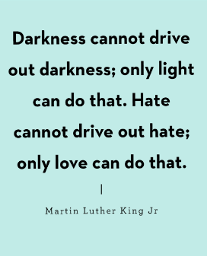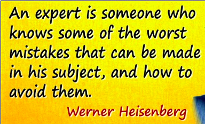
The U.S. Department of Education WANTS YOU!!!! NOW
Jul 26, 2023Special Education Advocates Are Highly Valued -
By The U.S. Department Of Education
In a land where coffee flows like rivers and memes reign supreme, there exists a peculiar group known as special education advocates. These valiant warriors of inclusion, armed with stacks of paperwork and hearts full of compassion, have a single mission: to ensure that every child receives the education they deserve. Yet, despite their noble cause, they find themselves trapped in a vortex of unreciprocated love, like the unsung heroes of the education world. These advocates feel like no one loves them. The only ones who truly appreciate their efforts are the folks at the US Department of Education, who keep them on speed dial for their daily dose of excitement. After all, what's life without a sprinkle of chaos and a dash of acronyms?
Professional special education advocates are valued and considered ESSENTIAL CONSUMER ADVOCATES by the Department of Education due to their crucial role in 6 essential areas within the special education system. This includes:
- Protecting Consumer Rights
- Addressing Systemic Issues and Influence Policies
- Fostering Collaboration and Communication
- Promoting Education Quality and Accountability
- Empowering Students and Families, and
- Social Justice Work.
The presence of special education advocates and their advocacy help create a more equitable, responsive, and student-centered education system.
EDUCATION ADVOCATES
HAVE THE ABILITY TO CHANGE
INJUSTICE INTO JUSTICE AND
WEAKNESS INTO STRENGTH

Protecting Consumer Rights
-
- Special education advocates play a crucial role in promoting and protecting the rights of students with disabilities. They ensure that these students receive appropriate educational opportunities and are not discriminated against based on their disabilities.
- Special education advocates help navigate complex legal and administrative processes, ensuring that students and their families understand their rights and have a voice in educational decisions.
- Special education advocates protect consumer rights and ensure that the rights and interests of students and their families are protected within the education system. They advocate for:
- Fair treatment,
- Equal opportunities
- Access to quality education for all students.
- Removal of barriers that hinder a student's learning experience issues such as discrimination, inadequate resources, or educational inequities.

-
Addressing Systemic Issues and Influence Policies
- Special education advocates contribute to the development and implementation of inclusive education policies and practices.
- special education advocates help shape effective strategies for supporting and accommodating students with diverse needs by actively participating in policy discussions and collaborating with educational professionals.
- special education advocates play a critical role in identifying and addressing systemic issues within the education system. They provide valuable insights and perspectives based on their firsthand experiences working with students with disabilities by analyzing data, trends, and feedback from consumers.
- special education advocates identify patterns of inequity, discrimination, and deficiencies in educational policies and practices and raise awareness about these issues and advocate for systemic changes. They contribute to creating a more equitable and inclusive educational environment.

-
Fostering Collaboration and Communication
- Special education advocates serve as a bridge between families, educators, and the Department of Education by facilitating communication and collaboration among all stakeholders including students, families, educators, administrators, and policymakers. fostering a more comprehensive and supportive educational environment.
- Special education advocates address concerns, mediate disputes, and promote understanding, ultimately leading to improved outcomes for students with disabilities.
- Special education advocates foster collaboration and create opportunities for constructive feedback, problem-solving, and the exchange of ideas, ultimately leading to better outcomes and a more inclusive education system.

-
Promoting Education Quality and Accountability
- Special education advocates play a crucial role in holding educational institutions accountable for the quality of education they provide. They monitor and assess the educational programs, policies, and practices to ensure they comply with established standards and best practices, special education laws, and regulations.
- Special education advocates help ensure that resources are allocated appropriately so students' rights are upheld by raising awareness about systemic issues.
- Special education advocates are necessary for reforms and hold educational institutions accountable for providing inclusive, quality, research-based, and individualized education to students with disabilities.
- Special education advocates identify areas of improvement and advocate for necessary changes, they contribute to enhancing the overall quality of education for all students.

-
Empowering Students and Families
- As consumer advocates, Special education advocates empower students and their families by providing them with information, guidance, and support.
- They help families navigate complex educational systems, understand their rights and responsibilities, and make informed decisions.
- By empowering parents and students, advocates enable them to actively participate in educational processes, ensuring they have a voice in shaping their own education.
EDUCATION IS THE MOST POWERFUL WEAPON
YOU CAN USE TO CHANGE THE WORLD.
Nelson Mandela

- Social Justice Work
- Special education advocacy is a calling to one of the last frontiers in social justice and civil rights. We are called to the rights of inclusion and dignity. This is an inclusion of acceptance, not just tolerance. We must honor the dignity of everyone!
- We work individually and collectively to change practices and policies due to a moral directive.
- It requires discernment to know if you are called to this difficult profession.
- Some are thrown into this profession by necessity, through their children‘s experiences in our inadequate special education system.
- Most special education advocates are here, because of a vocational calling to service.
- Education Advocates are public safety professionals since their presence is required to resolve, correct, or assist in particular processes or situations that protect a student’s future life, by assuring a student’s access to their education.
- Educational advocacy promotes equal educational, economic, social, and workplace opportunities. Education advocacy is important to the safety and security of ALL individuals and our communities.
- As special education advocates, we correct the immoral practices of educational inequality, oppression, discrimination, segregation, school-to-prison pipelines/mass incarceration, violence, racism, economic injustice, ableism, and the abuse of power.
- This Social Justice Work is rooted in the idea that all people should have equal rights and access to resources, participation, and opportunities.
- We assist in the removal of artificial barriers, prejudices or preferences.
- We advocate for a student to have an equal chance to compete within society's framework of educational and social goals.
- We ensure that students can fulfill their societal roles and receive what is due them from society.
- We break down barriers to social mobility and economic justice and create safety nets linked to education.
- Social justice assigns rights and duties to the institutions within our society, through legislation, that enables students to receive basic benefits and access to their education. Education Advocates assure that this is done.
- Special education advocacy work addresses the social injustices that infringe upon a student’s rights to FAPE, marginalize their opportunities, or treat them unfairly. Our task and moral obligation are to:
- eradicate the suffering of all students,
- assure that they can reach their potential – commensurate with their abilities,
- address all of their educational needs with appropriate research-based interventions,
- and assure that they are physically and psychologically safe and secure.
EDUCATION ADVOCACY IS THE WORK OF PEOPLE OF HEART.

Quaker Advocacy Quote:
“We support the efforts of the exploited to attain self-determination and social, political, and economic justice. This mission often requires persuading exploiters to change their ways, not only for the sake of the exploited but also to strengthen their own goodness. We seek both to bring to light and to counteract or expunge structures, institutions, language, and thought processes that subtly support discrimination and exploitation. We examine our own attitudes and practices to test whether we contribute as much as we ought to social, political, and economic justice. We encourage others to adopt consensus decision-making that is Spirit-led.”
NSEAI, the National Special Education Advocacy Institute, is a nationally recognized professional association for Education Advocates and was founded in 2008. NSEAI offers the only professional national board certification in Education Advocacy. They are proud to represent education advocates and offer the most extensive cross-training program available today. Their Director and Clinical Director have both received Presidential awards for their contributions to the education advocacy community.

NSEAI has become known as the National Gold Standard in Education Advocacy Training because it does not JUST focus on the legal/due process issues but trains education advocates to become IEP DEVELOPMENT EXPERTS so they GET THE IEP RIGHT - FROM THE START. This includes cross-training in educational practices, all related services/clinical areas, and case management.

NSEAI has worked tirelessly to close opportunity and educational gaps and provide critical resources for education advocates to address the unique and individual special needs of students, to ensure every student has an opportunity to succeed at school and in their community.
The disability communities are unfortunately tarnished with a legacy of infighting. At NSEAI we have created a positive community where we play nice in the sandbox. In the short time NSEAI has been in existence they have already made system changes.

NSEAI's online courses efficiently lead parents and professionals to an expert level of education advocacy in just 12 days of on-demand courses that you can do at your convenience.
OUR CHILDREN DO NOT HAVE TIME TO WASTE.
LEARN TO DEVELOP A CHILD FOCUSED IEP CORRECTLY FROM THE START
WE TEACH HOW TO GO FROM
LEGALLY SUFFICIENT TO HIGHLY EFFECTIVE IEPs
CHANGE THEIR LIVES NOW
CLICK HERE
AUTHORS
Marie Lewis is an author, consultant, and national speaker on best practices in education advocacy. She is a parent of 3 children and a Disability Case Manager, Board Certified Education Advocate, and Behavior Specialist Consultant. She has assisted in the development of thousands of IEPs nationally and consults on developing appropriately individualized IEPs that are outcome-based vs legally sufficient. She brings a great depth of expertise, practical experience, and compassion to her work as well as expert insight, vision, and systemic thinking. She is passionate and funny and she always inspires and informs.
MJ Gore has an MEd in counseling and a degree in elementary education and natural sciences. She worked as a life-skills and learning support teacher She has been honored with the Presidential Volunteer Service Award. She is the Director and on the faculty at the National Special Education Advocacy Institute. Her passion is social justice, especially in the area of education. She is a Board Certified Education Advocate who teaches professional advocates, educators, and clinicians the best practices in education advocacy.
